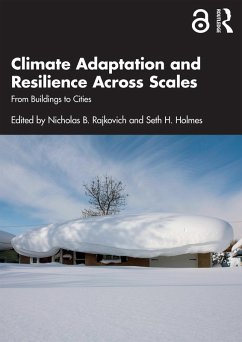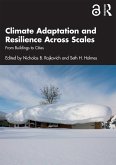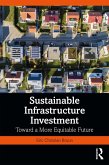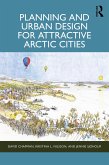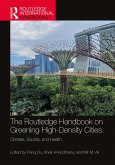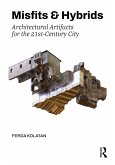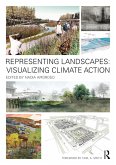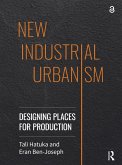Climate Adaptation and Resilience Across Scales (eBook, ePUB)
From Buildings to Cities
Redaktion: Rajkovich, Nicholas B.; Holmes, Seth H.
0,00 €
0,00 €
inkl. MwSt.
Sofort per Download lieferbar

0 °P sammeln
0,00 €
Als Download kaufen

0,00 €
inkl. MwSt.
Sofort per Download lieferbar

0 °P sammeln
Jetzt verschenken
Alle Infos zum eBook verschenken
0,00 €
inkl. MwSt.
Sofort per Download lieferbar
Alle Infos zum eBook verschenken

0 °P sammeln
Climate Adaptation and Resilience Across Scales (eBook, ePUB)
From Buildings to Cities
Redaktion: Rajkovich, Nicholas B.; Holmes, Seth H.
- Format: ePub
- Merkliste
- Auf die Merkliste
- Bewerten Bewerten
- Teilen
- Produkt teilen
- Produkterinnerung
- Produkterinnerung

Bitte loggen Sie sich zunächst in Ihr Kundenkonto ein oder registrieren Sie sich bei
bücher.de, um das eBook-Abo tolino select nutzen zu können.
Hier können Sie sich einloggen
Hier können Sie sich einloggen
Sie sind bereits eingeloggt. Klicken Sie auf 2. tolino select Abo, um fortzufahren.

Bitte loggen Sie sich zunächst in Ihr Kundenkonto ein oder registrieren Sie sich bei bücher.de, um das eBook-Abo tolino select nutzen zu können.
Climate Adaptation and Resilience Across Scales provides professionals with guidance on adapting the built environment to a changing climate. This edited volume brings together practitioners and researchers to discuss climate-related resilience from the building to the city scale.
- Geräte: eReader
- ohne Kopierschutz
- eBook Hilfe
- Größe: 14.46MB
Andere Kunden interessierten sich auch für
![Climate Adaptation and Resilience Across Scales (eBook, PDF) Climate Adaptation and Resilience Across Scales (eBook, PDF)]() Climate Adaptation and Resilience Across Scales (eBook, PDF)0,00 €
Climate Adaptation and Resilience Across Scales (eBook, PDF)0,00 €![Sustainable Infrastructure Investment (eBook, ePUB) Sustainable Infrastructure Investment (eBook, ePUB)]() Eric Christian BruunSustainable Infrastructure Investment (eBook, ePUB)39,95 €
Eric Christian BruunSustainable Infrastructure Investment (eBook, ePUB)39,95 €![Planning and Urban Design for Attractive Arctic Cities (eBook, ePUB) Planning and Urban Design for Attractive Arctic Cities (eBook, ePUB)]() David ChapmanPlanning and Urban Design for Attractive Arctic Cities (eBook, ePUB)39,95 €
David ChapmanPlanning and Urban Design for Attractive Arctic Cities (eBook, ePUB)39,95 €![The Routledge Handbook on Greening High-Density Cities (eBook, ePUB) The Routledge Handbook on Greening High-Density Cities (eBook, ePUB)]() The Routledge Handbook on Greening High-Density Cities (eBook, ePUB)46,95 €
The Routledge Handbook on Greening High-Density Cities (eBook, ePUB)46,95 €![Misfits & Hybrids: Architectural Artifacts for the 21st-Century City (eBook, ePUB) Misfits & Hybrids: Architectural Artifacts for the 21st-Century City (eBook, ePUB)]() Ferda KolatanMisfits & Hybrids: Architectural Artifacts for the 21st-Century City (eBook, ePUB)37,95 €
Ferda KolatanMisfits & Hybrids: Architectural Artifacts for the 21st-Century City (eBook, ePUB)37,95 €![Representing Landscapes: Visualizing Climate Action (eBook, ePUB) Representing Landscapes: Visualizing Climate Action (eBook, ePUB)]() Representing Landscapes: Visualizing Climate Action (eBook, ePUB)37,95 €
Representing Landscapes: Visualizing Climate Action (eBook, ePUB)37,95 €![New Industrial Urbanism (eBook, ePUB) New Industrial Urbanism (eBook, ePUB)]() Tali HatukaNew Industrial Urbanism (eBook, ePUB)0,00 €
Tali HatukaNew Industrial Urbanism (eBook, ePUB)0,00 €-
-
-
Climate Adaptation and Resilience Across Scales provides professionals with guidance on adapting the built environment to a changing climate. This edited volume brings together practitioners and researchers to discuss climate-related resilience from the building to the city scale.
Dieser Download kann aus rechtlichen Gründen nur mit Rechnungsadresse in A, B, BG, CY, CZ, D, DK, EW, E, FIN, F, GR, HR, H, IRL, I, LT, L, LR, M, NL, PL, P, R, S, SLO, SK ausgeliefert werden.
Produktdetails
- Produktdetails
- Verlag: Taylor & Francis eBooks
- Seitenzahl: 286
- Erscheinungstermin: 15. November 2021
- Englisch
- ISBN-13: 9781000470994
- Artikelnr.: 62650023
- Verlag: Taylor & Francis eBooks
- Seitenzahl: 286
- Erscheinungstermin: 15. November 2021
- Englisch
- ISBN-13: 9781000470994
- Artikelnr.: 62650023
- Herstellerkennzeichnung Die Herstellerinformationen sind derzeit nicht verfügbar.
Nicholas B. Rajkovich, PhD, AIA, is an Associate Professor in the Department of Architecture at the University at Buffalo. His research investigates the intersection among energy efficiency, renewable energy, and adaptation to climate change in buildings. Prior to earning a PhD in Urban and Regional Planning from the University of Michigan, he was a Senior Program Engineer at Pacific Gas & Electric Company (PG&E). At PG&E, he was responsible for developing their first zero net energy program. He has a Master of Architecture from the University of Oregon and a Bachelor of Architecture from Cornell University. Seth H. Holmes, AIA, LEED AP BD+C, is an Associate Professor of Architecture in the Golisano Institute for Sustainability at the Rochester Institute of Technology. His research addresses climate adaptation and resilient design with focuses on the integration of climate change projections with building performance modelling and methods for predicting overheating in buildings. His publications include a chapter in Planning for Community-based Disaster Resilience Worldwide (edited by by A. Awotona), and articles in Building Research and Information journal and ASHRAE, and he advised the LEED Resilient Design pilot credit update. He practices architecture with his firm Benefit Street Design. He holds a Master in Design Studies for Sustainable Design from the Harvard Graduate School of Design and a Bachelor of Architecture from Roger Williams University.
1. Introduction
2. Resilient Design Modeling: Where are We and Where Can We Go?
3. Planning for a Changing Climate without Accurate Predictions
4. Tools for Community Energy Empowerment: A Co-Design Approach
5. RHOnDA: An Online Tool to Help Homeowners and Tenants Increase Resilience
6. Resilience Hubs: Shifting Power to Communities Through Action
7. Climate Change and Health: Connecting the Dots, Building a Resilient Future
8. Increasing Adaptive Capacity of Vulnerable Populations Through Inclusive Design
9. Passive Survivability: Keeping Occupants Safe in an Age of Disruptions
10. Designing Resilient Coastal Communities with Living Shorelines
11. Adapting Inland Floodplain Housing to a Changing Climate: Disturbance, Risk, and Uncertainty as Drivers for Design
12. 4D! Resilient Design in Four Dimensions
13. Understanding Sustainability and Resilience as Applied: Tracking the Discourse in City Policy
14. Perspectives from Practice
2. Resilient Design Modeling: Where are We and Where Can We Go?
3. Planning for a Changing Climate without Accurate Predictions
4. Tools for Community Energy Empowerment: A Co-Design Approach
5. RHOnDA: An Online Tool to Help Homeowners and Tenants Increase Resilience
6. Resilience Hubs: Shifting Power to Communities Through Action
7. Climate Change and Health: Connecting the Dots, Building a Resilient Future
8. Increasing Adaptive Capacity of Vulnerable Populations Through Inclusive Design
9. Passive Survivability: Keeping Occupants Safe in an Age of Disruptions
10. Designing Resilient Coastal Communities with Living Shorelines
11. Adapting Inland Floodplain Housing to a Changing Climate: Disturbance, Risk, and Uncertainty as Drivers for Design
12. 4D! Resilient Design in Four Dimensions
13. Understanding Sustainability and Resilience as Applied: Tracking the Discourse in City Policy
14. Perspectives from Practice
1. Introduction
2. Resilient Design Modeling: Where are We and Where Can We Go?
3. Planning for a Changing Climate without Accurate Predictions
4. Tools for Community Energy Empowerment: A Co-Design Approach
5. RHOnDA: An Online Tool to Help Homeowners and Tenants Increase Resilience
6. Resilience Hubs: Shifting Power to Communities Through Action
7. Climate Change and Health: Connecting the Dots, Building a Resilient Future
8. Increasing Adaptive Capacity of Vulnerable Populations Through Inclusive Design
9. Passive Survivability: Keeping Occupants Safe in an Age of Disruptions
10. Designing Resilient Coastal Communities with Living Shorelines
11. Adapting Inland Floodplain Housing to a Changing Climate: Disturbance, Risk, and Uncertainty as Drivers for Design
12. 4D! Resilient Design in Four Dimensions
13. Understanding Sustainability and Resilience as Applied: Tracking the Discourse in City Policy
14. Perspectives from Practice
2. Resilient Design Modeling: Where are We and Where Can We Go?
3. Planning for a Changing Climate without Accurate Predictions
4. Tools for Community Energy Empowerment: A Co-Design Approach
5. RHOnDA: An Online Tool to Help Homeowners and Tenants Increase Resilience
6. Resilience Hubs: Shifting Power to Communities Through Action
7. Climate Change and Health: Connecting the Dots, Building a Resilient Future
8. Increasing Adaptive Capacity of Vulnerable Populations Through Inclusive Design
9. Passive Survivability: Keeping Occupants Safe in an Age of Disruptions
10. Designing Resilient Coastal Communities with Living Shorelines
11. Adapting Inland Floodplain Housing to a Changing Climate: Disturbance, Risk, and Uncertainty as Drivers for Design
12. 4D! Resilient Design in Four Dimensions
13. Understanding Sustainability and Resilience as Applied: Tracking the Discourse in City Policy
14. Perspectives from Practice
